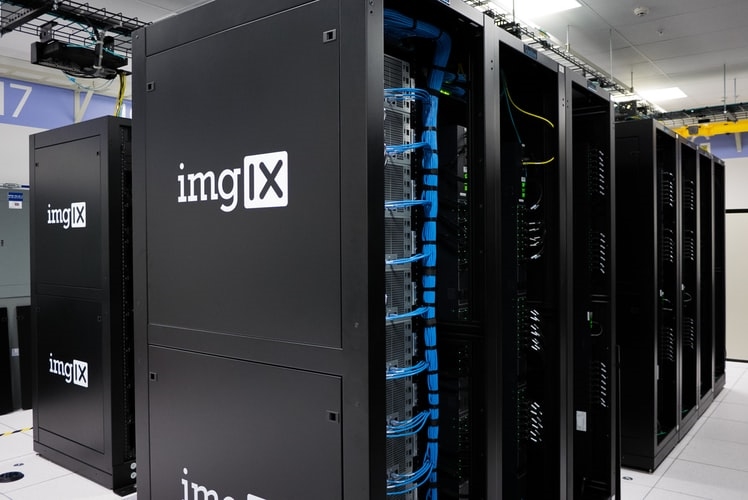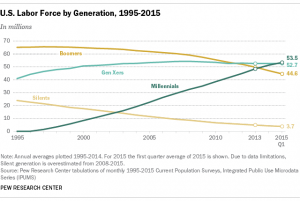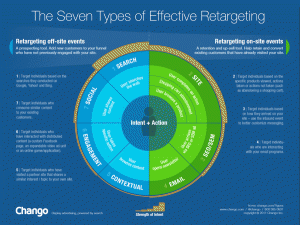
Digital transformation runs a global migration of businesses from offline to online experiences. Effective marketing takes the brands’ attention and efforts to where their target audiences increasingly are – that’s online. It fuels a continuous e-Commerce evolution driven by emerging technology trends.
Beyond the fact that commerce is becoming completely digitized today, it is already injected with a dose of tech innovations, like ML, AI, Big Data, AR/VR, 5G, and other technologies. In this article, we will outline seven leading-edge design and technology trends that will define eCommerce in 2020.
AI-Driven ECommerce
Artificial intelligence continues to evolve, playing an increasingly significant role in our lives. ECommerce has taken the business prospect to the next level with the help of AI technology. Developing AI-driven eCommerce platforms, modern businesses take a significant advantage in the market. The AI uses range from the ability to analyze data sets, defining patterns and building a highly personalized experience.
Due to fast-developing AI, intuitive and natural human-technology interactions are becoming the new normal. AI has become an essential component of many user experiences, including eCommerce mobile applications and web stores. Communication with chatbots on the web, mobile phone queries to Google Now, and making requests via Alexa on Amazon Echo speaker – these are just several daily use cases, in which people interact with technologies using AI as an intermediator.
Smart eCommerce businesses have started integrating AI technologies into their ecosystems, so their customers will experience absolutely new AI-powered interactions in 2020.
Augmented and Virtual Realities

As one of the biggest technology trends itself, Virtual Reality has become one of the most disruptive eCommerce trends too. Virtual showrooms, mobile applications with a built-in augmented reality and virtual reality functions, product visualizations with detailed specs and features, and beyond – these are just a few of VR uses in eCommerce
More Focus on Mobile Shoppers

“Worldwide, more than half of all mobile traffic is now generated through mobile web alone. Providing customers with access to a robust mobile web experience – eliminating a gap for them between you and the best possible experience for eCommerce business – is all-important in the mobile-first world in which we live.”
– Conor McGann, Mobile UX Specialist at Google for Global Report on E-Commerce Trends in 2020, created by Divante & Kantar.
Mobile commerce is a natural progression of online shopping. ECommerce entrepreneurs should focus on mobile app development opportunities to provide smooth mCommerce experiences for their customers since it is the only option to stay competitive in the modern market.
Besides an intuitive mobile shopping experience, mCommerce also served as a trigger for new industries and services, such as mobile money transfers, electronic tickets and boarding passes, digital content purchases and delivery, mobile banking, contactless payments and in-app payments, mobile marketing, coupons, and loyalty cards.
Big Data

AI and Big Data have become one of the biggest emerging eCommerce trends. The fast development of big data and artificial intelligence reinforces analytics tools and provides brands with more precise predictive analytics and data mining. They support companies in understanding data and delivering customers highly-related suggestions. New data sources and improvements in data literacy levels will lead to the generation of new business insights.
Voice Commerce

Now, we are the witnesses of the integration of voice recognition into eCommerce. Machine learning and voice recognition technologies have brilliantly evolved and gave birth to a new concept of Voice Commerce. Customers are more keen to make repetitive orders via voice assistants, where the purchase path and products are already familiar for them.
Blockchain Is Even More Alluring
Blockchain becomes even more alluring for businesses that strive for transparency, sustainability, and trust. This technology allows providing maximum visibility over processes by recording data on an entirely transparent ledger that is shared with all the participants.
Beyond vouching for the credibility of cryptocurrencies, Blockchain offers much more value for business and can be used in many applications, including decentralized cross-border trade, crypto payments, simplified card network payments, borderless P2P payments, cutting out middlemen in all aspects of eCommerce, and more. However, the incredible experiments with Blockchain don’t stop here.
Although there are many Blockchain applications that exist in the experimental phase today, most of them seem to grow into full-fledged solutions that will drive eCommerce business effectiveness in 2020.
Zero Latency Through 5G

In 2020, we will meet a full Internet connectivity update provided by the deployment of 5G in Singapore. It probably doesn’t sound as fantastic as about 4G when it has just been introduced to the world. However, it opens many more opportunities for businesses and their customers.
According to Adobe Digital, 5G will drive global mobile eCommerce revenue by $ 12 billion by 2021. 5G will make online shopping increasingly faster and super-convenient, providing opportunities for instant purchases on-the-go.
5G will change the way that customers connect with products and services online, as companies using this breakthrough in technology should improve their marketing and support functions, as well as creating new sales opportunities.
Companies across all the industries can significantly benefit from 5G. Although to unlock the potential of 5G, organizations should have more modern technology partnerships in place: infrastructure, software, and hardware partnerships that won’t hold them back from developing new immersive experiences.
Conclusion
There are no permanent things in the whole world, which is dynamic and fast-evolving by its nature. As a part of this ecosystem, eCommerce grows and develops too, incorporating new amazing technologies, practices, and approaches. The biggest eCommerce trends 2020 don’t stop here. These are just the predictions, which, hopefully, will be even extended into more incredible eCommerce innovations.
Digital & Social Articles on Business 2 Community
(60)
Report Post





